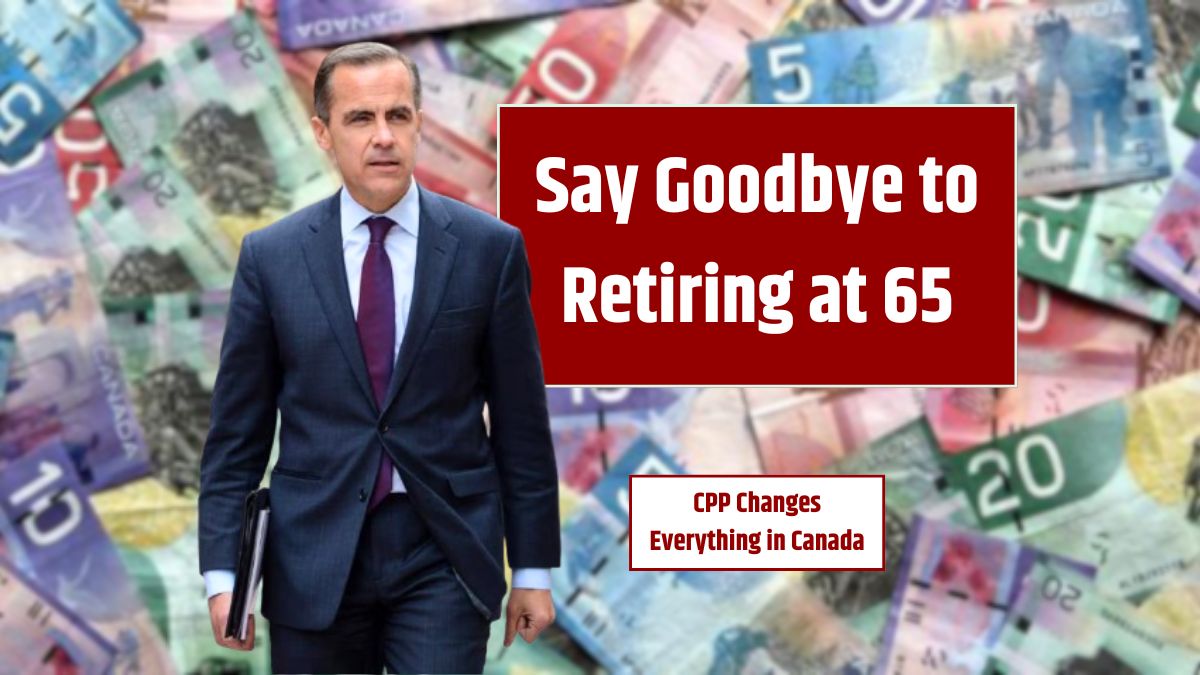For generations, Canadians considered age 65 the official gateway to retirement. It was when you could start collecting Old Age Security (OAS) and Canada Pension Plan (CPP) benefits. But as life expectancy rises and the economy shifts, that magic number is no longer as fixed as it once was. Retirement today is more about flexibility, timing, and strategy than a single age.
Norms
The idea of retiring at 65 is slowly fading. Several factors are changing how Canadians view retirement. People are living longer—into their 80s and beyond. The cost of living is climbing. And government programs are adapting in response.
Public pensions like CPP and OAS still kick in at 65, but there are now incentives to delay them. Waiting just a few years can mean significantly larger monthly payments. And for many Canadians, that trade-off makes sense.
CPP
You can start collecting CPP as early as age 60, but there’s a cost. The earlier you start, the smaller your monthly cheque. The longer you wait—up to age 70—the more you’ll receive.
CPP Payment Adjustments
| Start Age | Monthly Adjustment |
|---|---|
| 60 | 36% reduction |
| 65 | Full amount |
| 70 | 42% increase |
Delaying to age 70 can increase your CPP benefits by nearly half compared to taking them at 60. That’s a huge difference over the course of a long retirement.
OAS
Old Age Security works in a similar way. You’re eligible at 65, but if you can wait until 70, you’ll receive a boost.
OAS Payment Adjustments
| Start Age | Monthly Adjustment |
|---|---|
| 65 | Standard amount |
| 70 | 36% increase |
This option was introduced to reflect how modern retirement is evolving. Still, it’s optional—you’re free to start collecting at 65 if that suits your plan better.
Future
Could the retirement age eventually go up? It’s possible. In 2016, Canada backed away from a plan to raise the OAS age to 67, but economic realities haven’t gone away. Other countries, like the U.S. and U.K., are gradually raising their public pension ages. If pressure builds to keep Canada’s programs sustainable, changes may resurface.
Working
More Canadians are continuing to work past 65. Back in 2000, only 1 in 10 people over 65 had a job. Now it’s closer to 1 in 5. For many, it’s not just about needing the income—working offers purpose, structure, and social connection.
Flexibility
The biggest lesson? Retirement age isn’t a deadline anymore—it’s a decision. You don’t have to stop working at 65, or even 70. What matters is building a retirement plan that works for your life and goals.
Here are some smart tips to help:
- Know how CPP and OAS work, including how timing affects your payout
- Use longevity calculators to plan how long your savings might need to last
- Stay updated on any government changes to pension rules
- Think about phased retirement or part-time work to ease into retired life
Today’s retirement is more of a path than a finish line. Whether you aim to leave the workforce early or keep going into your 70s, it all comes down to having the right tools, knowledge, and flexibility.
FAQs
Can I get CPP before age 65?
Yes, but your payment is reduced by up to 36%.
Does delaying OAS increase benefits?
Yes, delaying to 70 boosts OAS by 36%.
Is there a plan to raise retirement age?
Not currently, but it has been debated before.
Are more seniors working past 65?
Yes, about 20% now work beyond age 65.
Is phased retirement a good idea?
Yes, it can ease financial stress and extend savings.

















